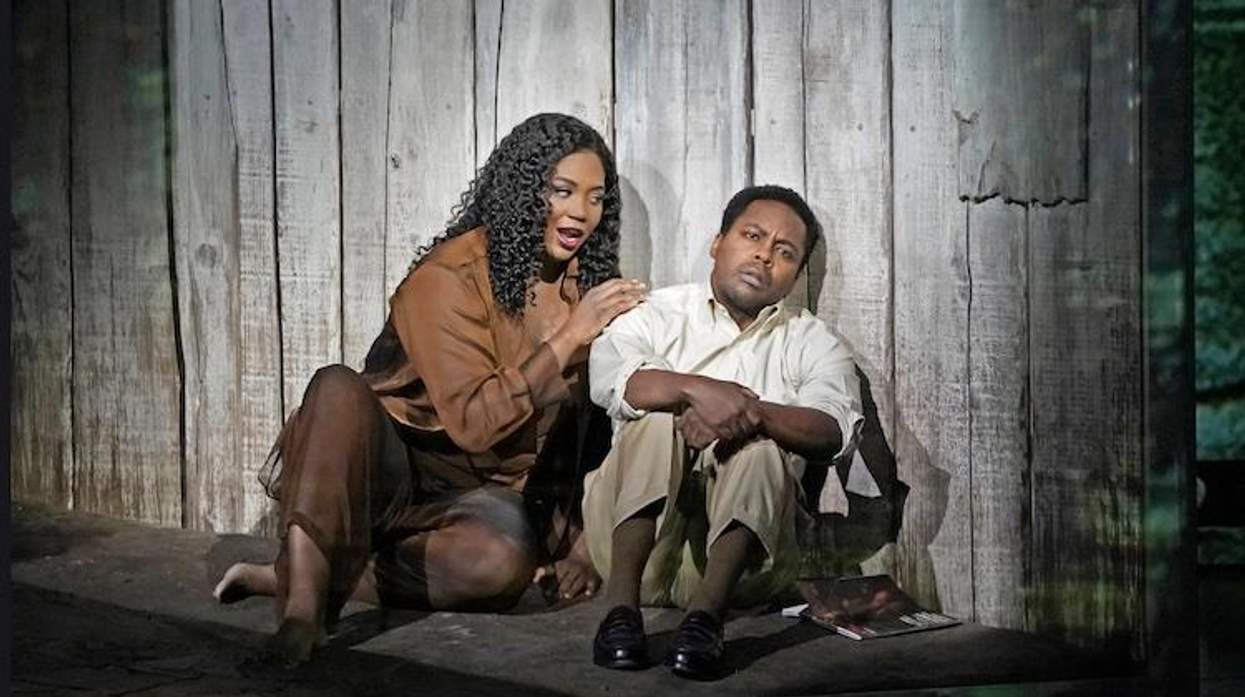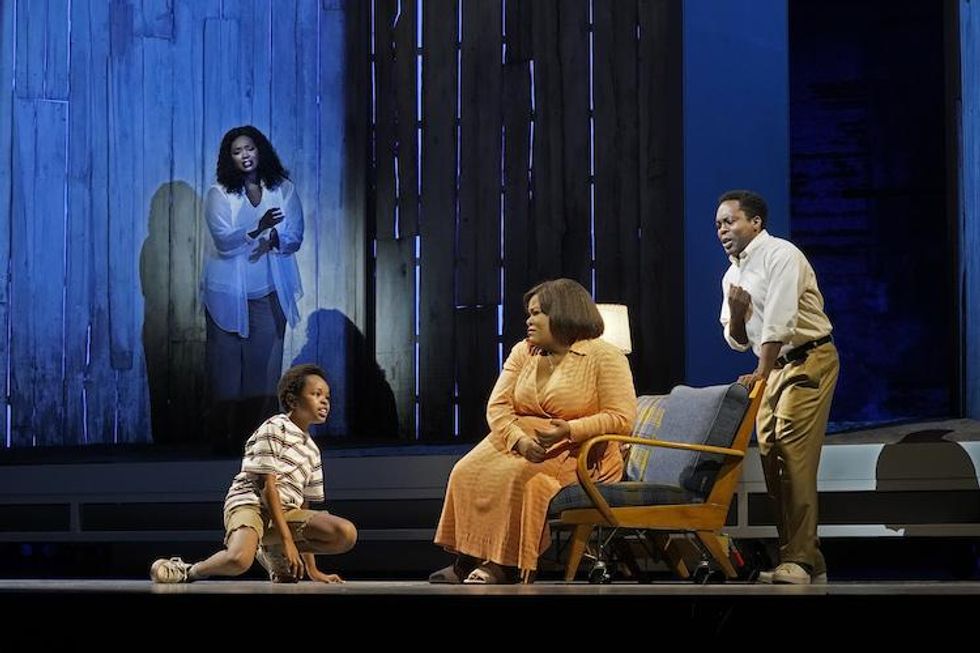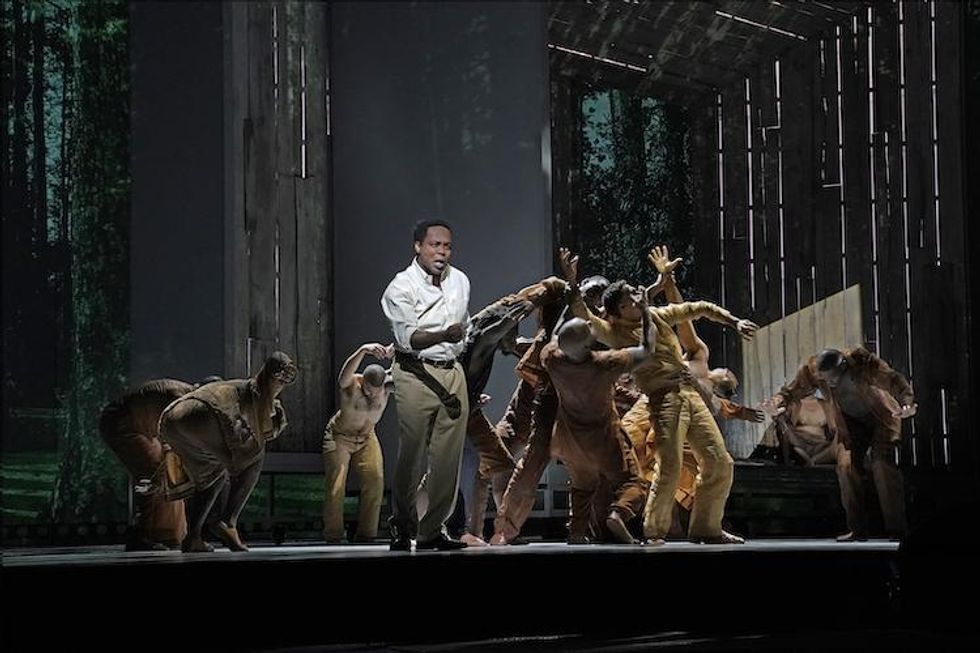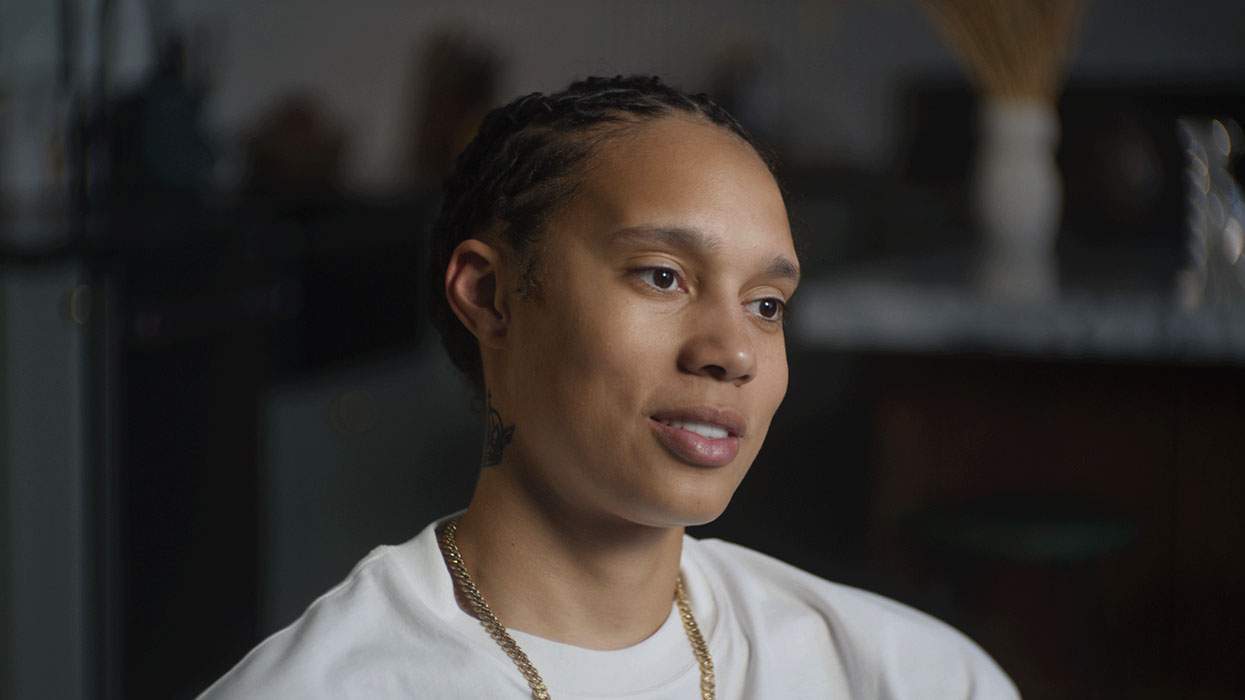I've spent thousands of hours of my life in an opera house and love every second: the huge voices, lavish productions, and outlandish plots. I've been hooked ever since college. Yes, there were sometimes stares, sometimes weird comments -- "Did you know this was in German?" But having grown up Black and gay in the South, I'm not about to let someone else's ignorance interfere with something I love.
I have a particular fondness for the Metropolitan Opera House in New York. Built on what was the backdrop for the musical West Side Story, the Met is a staggering temple of old white privilege with curving double staircases and crystal chandeliers that ascend to the ceiling. Yet as much as I love the Met, I've never seen myself reflected or represented there. Black artists such as Leontyne Price and Jessye Norman have triumphed at the Met, and there are a few popular operas featuring people of color, but most opera singers are non-POC and the most popular operas are written by white men. The few operas written by POC are performed in small, regional houses -- never at the Met.
When the Met announced that it would open the 2021 season with Fire Shut Up in My Bones, a new opera created by people of color, I was skeptical. The original Met was built so that the Vanderbilts, Morgans, and Rockefellers could have private opera boxes. The current Met was built under the guise of urban renewal, i.e., shoving out the less privileged Black and brown people who lived there. Now, in the wake of the murder of George Floyd (and others) and the subsequent protests, the Met seemed to be responding to the zeitgeist. Fire's music is by the great Terence Blanchard, with a book by Kasi Lemmons based on Charles M. Blow's memoir. The opera was advertised as a brave work centered around the molestation of a young Black man and the impact of his abuse on his relationships with his family and community. The lead character questions his sexuality, making Fire the first opera performed at the Met to be written by a Black man and to focus on a queer man of color.
Angel Blue, Walter Russell III, Latonia Moore, and Will Liverman
The opera opened to rave reviews and was a box office smash. On the day I attended, the first thing I noticed was that the majority of people in the audience were Black. I lost count of how many times someone nodded at me in a greeting or how many handsome Black men flashed me a smile. It was wonderful. I had never consciously felt unwelcome in that house, but this was the first time I felt that I truly belonged there. I was not a minority. Rather, I blended in with a crowd of close to 4,000 people seeing themselves reflected on this grandest of opera stages.
When the curtain rose and 8-year-old Charles skipped onto the stage, I recognized a kindred spirit. The abuse scene was disturbing, though sensitively staged. As Charles grew older, I empathized with his sexual identity crisis, his desire to be more "masculine," and I cringed when he thought he'd found the right woman. I was intoxicated by the beauty of the male dancers in the Act 2 ballet and cheered the exuberant step-dance sequence in the fraternity scene. I wept with thousands of others in the house when Charles finally found the courage to tell his mother of his abuse. The singing was excellent all around, with incredible performances from Will Liverman, Angel Blue, and Latonia Moore. Blanchard's music was a delicate blend of classical, jazz, and gospel: Orchestral interludes gave way to jazz dissonance, and crowd scenes felt like a church revival (that's a good thing). The Met orchestra handled the material superlatively -- with all the pieces of the production coming together to create pristine, moving art.
Will Liverman (center)
When the lights came up and I rose from my seat, the woman next to me squeezed my arm and we told each other to have a good night. I passed an older couple and the gentleman patted me on the back. There was a man at the end of the aisle sobbing with his face in his hands. As Black people, and especially as Black queer people, we often survey a crowd to anticipate if we'll have any trouble for being who we are. As much as I love going to the opera, I subconsciously put on a kind of armor for protection whenever I attend a performance. With Fire, it was an incredible gift to leave that armor behind or, to quote the opera, to "leave it in the road." My hope is that the Met and major houses around the world will produce the work of Black artists but also artists of all ethnicities.
Although opera is a European tradition, it can only survive and thrive by responding to the times. With Fire, the Met chose to respond so beautifully.
This story is part of The Advocate's 2022 Entertainment Issue, which is out on newsstands April 2, 2022. To get your own copy directly, support queer media and subscribe -- or download yours for Amazon, Kindle, Nook, or Apple News.

















Charlie Kirk DID say stoning gay people was the 'perfect law' — and these other heinous quotes
These are some of his worst comments about LGBTQ+ people made by Charlie Kirk.